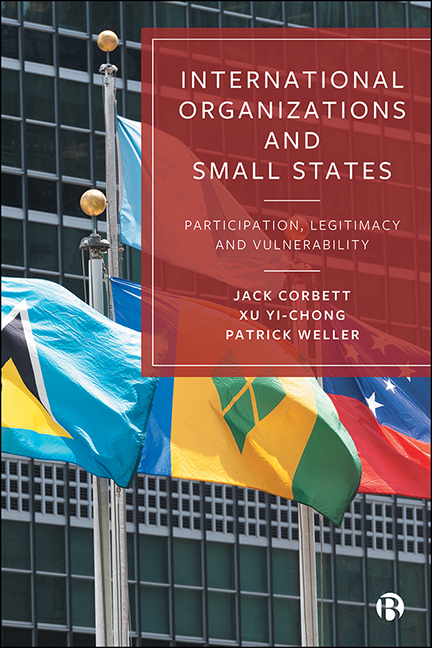5 - Differentiated Development in the IMF, the WBG, and the WTO
Published online by Cambridge University Press: 13 May 2022
Summary
The emergence of a distinct SIDS grouping and identity in relation to climate change is a ‘most likely’ case for their influence on IOs. It is an issue on which they hold the moral high ground as the first and worst effected: the canaries in the coal mine. A much higher threshold for their influence is whether similar strategies would be successful in other IOs and especially those that deal with economic affairs. In these IOs SIDS are not the poorest – most are middle-or upper middle-income countries – and account for a very low proportion of global trade. And yet, they have unique economic circumstances and vulnerabilities that are likely to be exacerbated by climate change.
This chapter documents the interaction between small states and the key economic IOs. The story is not as straightforward as the climate change story; the initiative does not always come from the SIDS; there is as often leadership from other countries; it is determined in part by the mores of the IOs themselves, by their traditional practices, and by their institutional rules, leading to a range of intermediaries speaking on behalf of the SIDS. Despite this complexity, the claim that the countries we now call SIDS have uniquely vulnerable economies due to their heavy reliance on a small number of economic sectors has become orthodoxy in IOs. The WB and IMF both recognize the SIDS agenda. The WTO has created the SVEs. These are important successes for SIDS that emerges from the complex interaction between large and small member states, donors, IOs’ leaders, and their secretariats. But there is less evidence that this recognition has been translated into tangible benefits for SIDS or IOs. Our economic story is thus less optimistic about SIDS influence than our account of climate change.
The chapter follows a similar structure to the last. We start by explaining the SIDS circumstance. We show how concerns about their economic viability explain their delayed decolonization and that despite some variations the perception of enduring vulnerability has persisted into the postindependence period. We show how this has become synonymous with an argument about ‘differentiated development’ – that economic development models designed for large states will not work for small ones.
- Type
- Chapter
- Information
- International Organizations and Small StatesParticipation, Legitimacy and Vulnerability, pp. 111 - 144Publisher: Bristol University PressPrint publication year: 2021

